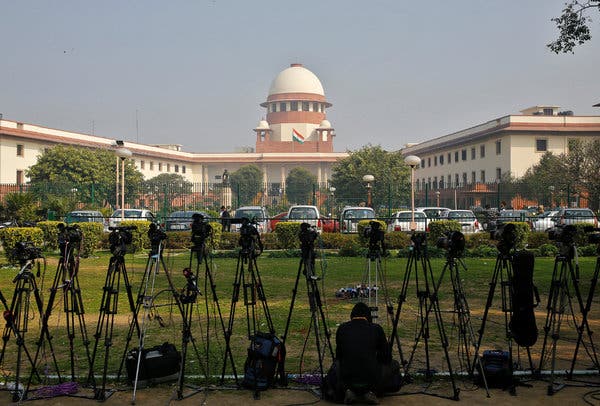Week after hate attack in Himachal, J&K workers say still don’t know why
Bahar Ahmed says this question will always haunt him: why did they barge into his room, break his arm, assault his colleagues, and call all of them “ugravaadi (extremist)”?
The answer, say lawyers and local residents in Himachal’s Barot village, lies in a “vicious hate campaign” on social media after 23 of the state’s 36 coronavirus cases were linked to the Tablighi Jamaat gathering in Delhi.
Ahmed was among nine labourers from J&K who were assaulted by a group of men in the village last Saturday — three of the attackers have since been arrested.
Hailing from Jammu’s Ramban and Reasi districts, the workers had arrived in Mandi last November to work on a power transmission project. They were staying in an abandoned hydel project shed, without electricity or other amenities, when the lockdown was announced.
“Two days before the incident, another worker arrived from a village nearby and joined us. He brought some money for our daily expenses. That’s when the trouble started. Some locals started viewing us with suspicion, and the security guard asked us to leave,” said Ahmad.
“A revenue officer from the area intervened and ensured that we were not thrown out. But on April 11 night, three-four men arrived in an SUV, broke open the door to the shed, and beat us. They accused us of being ugravaadis,” he said.
According to Ahmed and local residents, five of the workers were injured, including three whose arms were fractured. But one of the labourers managed to hide and note down the registration number of the SUV.
“Ahmed came to us running and crying, his arm badly injured. We rushed to the spot but the assailants had escaped,” said Daulat Negi, a local resident who helped take the victims to hospital.
Although police traced and arrested three men, and seized the vehicle, they maintain that the motive behind the attack is not clear. Those arrested have been granted bail, in view of the lockdown, but asked be present at the police station every day from morning to afternoon.
Another local resident, Joy Chowdhury, rushed the victims to hospital and later raised the issue on social media. “This is a village of simple, peace-loving and hospitable people. They have clearly been tricked by an anti-minority hate infodemic spreading in our country,” said Chowdhury, a marketing consultant.
Victor Dhissa, a Supreme Court lawyer from the state, said it “pains” him “to see ordinary citizens turning against each other due to a communal narrative playing out on social media”.
J&K students’ association spokesperson Nasir Khuehami called the incident a “result of vicious and hate campaign by media against minorities… of unjustified hate without any facts spread by hatemongers”. He also urged the Centre to evacuate all Kashmiri students and labourers stranded in various parts of the country.
Ankit Chandel, an ABVP activist from Himachal Pradesh University, said politicians and public figures, such as sportspersons and film stars, must emphasise unity among the public. “Unfortunately, a large number of COVID-19 cases linked to members of Tablighi Jamaat created an anti-minority fear among the people,” he said.
There have been multiple instances of hate messages on social media linked tothe outbreak. Earlier this month, a post by a resident of Fatehpur in Kangra sparked tension among local communities, and a police battalion armed with riot-control equipment had to be deployed to defuse the situation.
On Friday, DGP Sita Ram Mardi said: “In some shops and hospitals, communal discrimination is taking place and we have received reports of tenants being asked to vacate rented accommodations due to communal disharmony. This is not right and we will take strict action in such cases. In communally sensitive areas, we have formed peace committees who have been asked to hold meetings and ensure harmony in their areas.”
Back in Mandi, Ahmad and his colleagues have been shifted to a shelter at the government school in Padhar, around 40 km from Barot. He says the constant pain in his arm reminds of the attack. “Poverty brought us to this place. Why else would we have left our homes?” he said.






